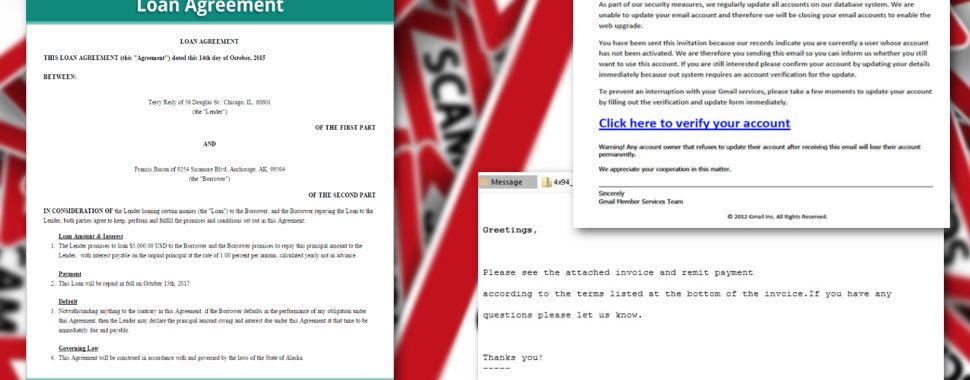Onlines Scams Are on the Rise
The beginning of September does not only signal the beginning of term papers, research projects, and thesis for the academic community, but the beginning of online scam period as well. Action Fraud, the UK national fraud and cyber crime reporting center, issued yearly warnings for the academic community about the increase of online scams targeting them.
Deception Forms are Diversifying
Such online felony oriented at users is not a novelty. Several times a year students are subject to diverse online deception. Some racketeers attempt to scam users with non-existent accommodation ads.
Most recent scam technique includes deceiving gullible users with fake alerts issued by university finance departments. For instance, one such recent felony includes beguiling users with fake email messages informing about suspended Student Loans Company (SLC) account. Similar scam occurred in 2011 which resulted in astounding 1.3 million dollars financial loss.
Fraudsters aim to wheedle out additional sensitive information. This tactic resembles the one employed by Facebook scammers who try to fool users with messages and attempt to persuade them into “verifying their account.”
Similar strategy is also popular among ransomware developers. Locky developers, which now launched latest version of Lukitus, assaulted users with fake emails using details acquired from the US Office of the Personnel Management breach in 2016. Infamous Cerber, Cezar, and Arena crypt-malware campaigns included fake messages supposedly sent by tax institutions containing menacing corrupted invoice files.
Lately, US citizens, especially residents of California and Texas, are likely to be bombarded with requests to donate to shady Hurricane Harvey fund-raising sites. Therefore, fraudsters do not cease astonishing the virtual community with new hacking techniques.
Ways to Escape Online Felony
The best advice to avoid becoming a victim of an online scam is to retain vigilance and cautiousness. Either you are a student or just an ordinary online user, you should:
- verify the sender before opening any email attachment supposedly sent by official institutions
- not install any updates promoted in random sites
- not disclose any valuable information to emails supposedly sent by your internet provider or loan company

